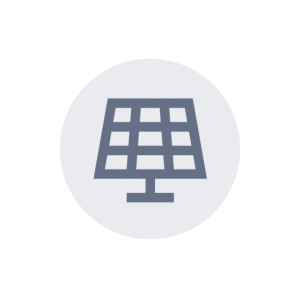These are emissions from our buildings and production sites. 2020 was the first year we measured performance against our science-based targets, and we are well on way to achieving a 59% reduction by 2030. As part of our Net Zero roadmap we have identified 21 projects in which we are investing significantly over the next 8 years to progressively reduce emissions across our UK and Irish sites.
From 2018, reduce Scope 1 and 2 absolute emissions by 59% by 2030 and to Net Zero by 2040

Since 2020, we have procured 100% renewable electricity to power our sites, reducing about 51% of our baseline operational emissions to zero. At present, we purchase certified Renewable Energy from our providers. With the demand for renewable electricity increasing rapidly, we are exploring options to secure future supplies by investing in renewable energy generation.

F-gases which are used in refrigeration systems are very potent Greenhouse Gases and account for about 15% of our baseline emissions. We have progressively reduced fugitive emissions from our sites over the last 5 years, and we target to replace these systems with net zero emission, ammonia refrigeration systems by 2035.

Burning fossil fuels to heat water on our sites accounted for approximately 33% of our baseline operational emissions. Over the last few years, we have been switching to lower emission fuels such as Liquefied Petroleum Gas (LPG). We will reduce these emissions rapidly by 2035, through a range of measures, including using renewable electrical heat sources and updating equipment to burn lower emission and carbon neutral fuels such as BioLPG. We will install renewable sources of heat recovery such as air to water heat pumps, beginning with our Llanybydder site in Wales.

Fuelling our own vehicles accounted for about 1% of our baseline emissions, and we plan to switch 100% of the company car fleet to zero-emission vehicles by 2030.
Solar Panels
at Headquarters in Grannagh, Ireland
 €1.5 million investment in a solar panel project at our Grannagh site
€1.5 million investment in a solar panel project at our Grannagh site
 18-month project, installing 3,500 solar roof panels covering 8,397m2
18-month project, installing 3,500 solar roof panels covering 8,397m2
 Produce 1,560,000kWh annually – 40% of electricity usage at the site
Produce 1,560,000kWh annually – 40% of electricity usage at the site
 Enough energy to power 210 homes for a year with ROI expected in 4.5 years
Enough energy to power 210 homes for a year with ROI expected in 4.5 years
The Grannagh site was selected as the first to have solar panels installed as its southern location offers optimal sunlight exposure, and using the roof space did not require additional planning permission. The project demonstrates the use of renewable energy to reduce costs, emissions and reliance on the national grid, ensuring uninterrupted operations and strong financial returns. It is a key milestone on our Plan Four Zero roadmap to maximise renewable energy generation at our sites, with similar solar facilities planned for other plants in Ireland and the UK.

Ammonia Liquid Feedline
at Cardington, England
To improve the operational efficiency of the refrigeration system at our Cardington site, we installed a liquid feed modulating valve into our main ammonia refrigeration system in 2024. The run time of large compressors was reduced, saving 572 MWh per year, equivalent to 118 tCO2e per year.

Refrigeration System Upgrade
at Halesowen, England
Halesowen is undergoing a large-scale upgrade of its refrigeration system. As a dedicated cold store, the savings of energy and carbon available by upgrading its older f-gas refrigeration systems for a dedicated modernised ammonia system are significant, projected to make an energy saving of 24%. In addition to the carbon saved by reducing energy consumption, Halesowen will also make a direct reduction in emissions by the removal of f-gases, equivalent to a reduction of 800 tCO2e per year.
